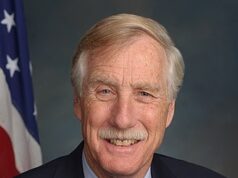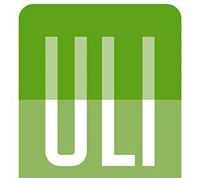NYCHA Issues First RFEI to Solicit Partners for New Phase of Public Development Work
NEW YORK – RealEstateRama – The New York City Housing Authority (NYCHA) today issued a Request for Expressions of Interest (RFEI)to solicit interest from partners with development projects on private land, exploring the expansion of public development opportunities that could serve low-income New Yorkers. Building on the success of programs like the Permanent Affordability Commitment Together (PACT) and the New York City Public Housing Preservation Trust, this new endeavor would pursue the potential for further public development and the creation of more low-income housing in all five boroughs, tapping into NYCHA’s resources as the largest landowner in New York City and its roots as a public developer of low-income housing. The RFEI invites members of the real estate community to propose sites and existing buildings where NYCHA can use its flexible tools to achieve these aims. Interested parties are encouraged to attend the virtual pre-submission conference being held on September 9, 2025.
“Ending the housing crisis requires a sense of urgency along with creativity and partnership. With the PACT program and the Public Housing Preservation Trust, NYCHA has demonstrated it can deliver thousands of affordable homes, “said Deputy Mayor Adolfo Carrión. “Once again acting as an innovative national leader, through this RFEI NYCHA will leverage private-sector partners which will lead to the development and expansion of deeply affordable housing.”
“This initiative marks a bold new chapter for NYCHA, and is about more than buildings,” said Executive Director for Housing Leila Bozorg. “It’s about a future where NYCHA’s scale and mission are harnessed to invest in and deliver high-quality, deeply affordable housing for residents, and a future where NYCHA housing is a platform for greater stability and long-term public stewardship.”
“NYCHA is the largest and most valuable residential housing stock in New York City, and the time to act is now,” said NYCHA Chair Jamie Rubin. “Returning to its roots as a public developer, NYCHA must leverage available assets to serve current public housing residents while creating more affordable housing opportunities citywide. This is both sound public policy and an essential next step for a stronger, more sustainable future.”
“NYCHA is not only the largest landlord in New York City but also the largest landowner, touching nearly every corner of the five boroughs,” said NYCHA Chief Executive Officer Lisa Bova-Hiatt. “Using all available strategies, we can maximize housing opportunities for NYCHA residents and other low-income New Yorkers and bring a forward-thinking approach to help address the city’s housing crisis in a tangible way.”
“NYCHA has made substantive progress addressing the mounting physical needs of many of our developments in recent years — despite decades of federal disinvestment — by unlocking necessary funding through the PACT program,” said NYCHA Chief Real Estate Officer Jonathan Gouveia. “Now, we look to employ that same ingenuity and explore every available tool at our disposal to build more housing amid the current crisis and provide adequate housing opportunities in New York City for all.”
“The severity of our housing crisis demands bold, creative, innovative solutions, and NYCHA is doing just that,” said New York Housing Conference Executive Director Rachel Fee. “By incorporating new development with the preservation and improvement of its public housing and surrounding neighborhoods, NYCHA is paving the way for sustainable, equitable communities across the city.”
“With more than half of New York tenants rent-burdened and fewer than one percent of vacant apartments renting for under $1,100, solving our housing crisis demands every tool in our toolbox — especially empowering NYCHA to put public capacity to work,” said Open New York Executive Director Annemarie Gray. “This program seeks to pair NYCHA’s public-sector know-how and ironclad commitment to affordability with privately owned land to create homes for the lowest-income New Yorkers most at risk of being priced out. Under public stewardship, this pilot has the potential to add badly needed, deeply affordable housing supply in neighborhoods across the city.”
“The mandate to create and preserve affordable homes in New York City and nationwide has never been more critical,” said CEO of Enterprise Community Partners and former Housing Preservation & Development Commissioner Shaun Donovan. “As the largest public housing authority in the country, NYCHA is again setting the pace when it comes to revitalizing the city’s housing supply, leveraging private partnerships, public resources, and federal government programs to ensure families across the city have affordable places to live over the long term. This latest initiative is another opportunity to transform the meaning of public housing in America, giving more New Yorkers access to affordable and beautiful places to call home.”
Since 2019, NYCHA has transformed its organizational infrastructure and management and has successfully worked with a federal monitor and government partners to develop and implement best practices for programs at public housing developments across the city. For instance, NYCHA has preserved existing developments and utilized more sustainable long-term funding through the PACT program. To date, more than 38,000 apartments are currently in some stage of the program (pre-development, in construction, or complete), as NYCHA continues to work toward 62,000 units overall. Over 1,700 additional units are also now included in the Trust pre-development pipeline and will receive comprehensive renovations following Section 8 conversion.
This next phase in NYCHA’s public development work recognizes the valuable role the Authority can play in helping to create more housing for low-income New Yorkers in New York City and explore the potential to expand NYCHA’s portfolio. The Authority seeks to leverage every available federal tool – including Restore Rebuild, formerly known as “Faircloth-to-RAD;” Transfer of Assistance; and project-based vouchers – to advance three distinct goals outlined in the RFEI: increasing high-quality housing opportunities and access to neighborhood amenities; generating revenue for reinvestment in NYCHA communities; and expanding low-income housing opportunities for New Yorkers. An example of a proposal that could be successful in response to this RFEI might be, but is not limited to, a planned prevailing-wage, senior affordable housing project located in the same neighborhood as a NYCHA development planned for capital investment, that proposes the use of vouchers on a proportion of units to provide housing for NYCHA residents.
Interested entities can learn more at an upcoming virtual pre-submission conference, scheduled for 10 a.m. on September 9, 2025. To attend the conference, interested entities should fill out an Applicant Interest Form, which has been posted along with the RFEI to NYCHA’s website.
Following the release of the RFEI, submissions from interested applicants will be accepted from October 14 to November 18, 2025, and must follow the submission instructions outlined in the RFEI.
###
About the New York City Housing Authority (NYCHA)
The New York City Housing Authority (NYCHA), the largest public housing authority in North America, was created in 1934 to provide decent, affordable housing for low- and moderate-income New Yorkers. NYCHA is home to 1 in 17 New Yorkers, providing affordable housing to 520,808 authorized residents through public housing and Permanent Affordability Commitment Together (PACT) programs as well as Section 8 housing. NYCHA has 177,569 apartments in 2,411 buildings across 335 conventional public housing and PACT developments. In addition, NYCHA connects residents to critical programs and services from external and internal partners, with a focus on economic opportunity, youth, seniors, and social services. With a housing stock that spans all five boroughs, NYCHA is a city within a city.
CONTACT: | (212) 306-3322
















